|
What are social skills?
Everyday, we are constantly using our social skills to interact with others - whether we're standing in a crowded lift or speaking to our friends. Social skills involves both verbal and non verbal communication such as language, speech, gestures and body language. It also includes the ability to understand and apply unwritten social rules across contexts.
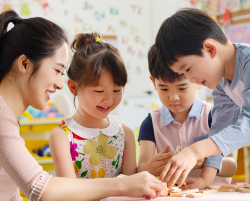
What is Social Thinking?
- Social Thinking is a methodology that was developed by Michelle Garcia Winner, a speech language pathologist, and it allows us to interpret the deeper meaning behind what others do in the world, and (if the situation calls for it) prompts us with how to respond.
- Using Social Thinking:
We all have thoughts about each other when we are sharing a common space with others, and those thoughts impact our feelings and our behaviours. Therefore we need to be both physically and mentally present in a group and use what we observe, hear, and feel to guide our thinking. One would then be more aware of how we should behave when interacting with others.
|
| Events & Promotions |
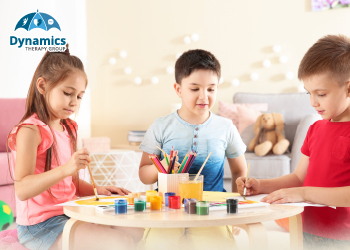 |
| Dynamics Social Skills Groups |
| Unlock your child's potential with Dynamics' Social Skills classes in Singapore! |
|
|
|
| Edunamics aims to help your child break through any challenge |
| Edunamics specialises in Educational Therapy. We offer assessment and academic support... |
|
|
 |
|
 |
| 20 Minute Free Call with our Therapist |
| Confused if your child needs therapy? Speak to our highly qualified therapists to find ... |
|
|
|
| Tips |
Tips and strategies when coaching your
child in social skills |
|
Use direct and specific language
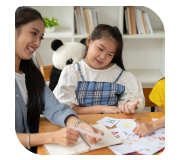
- Individuals with social learning challenges can be very literal in how they think and process information. Unfortunately for them, much of the language we use is often littered with figurative meanings and abstract words.
- To help them, always be direct and specific in your instructions. Instead of "Get your stuff and come over here when you're done" say, "Please go get your backpacks and jackets and then line up next to me."
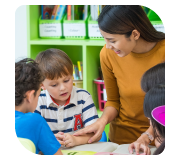 Tell them what to do!
Tell them what to do!
- To help your child understand what you're saying, phrase your instructions by telling them what to do, not what not to do. "Please walk" rather than "don't run." Don't run can also mean don't skip, hop, or any other type of movement, which is an okay thing to do. That's not exactly what you meant!
Show and tell them
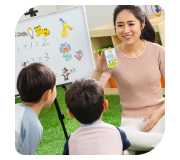
- Don't expect individuals with social learning challenges to be able to "read" your facial expressions and/or your feelings.
- Verbalize how you are feeling (positive and negative), show and tell them why you are making a certain choice or offering a suggestion. Explain what other peers might be thinking and feeling when they exhibit an unexpected reaction or behavior. Then coach them with things they can do to keep you and others feeling good about being around them. For example, "I'm feeling uncomfortable because you keep revealing the answers when other kids have their hands raised. I need you to hold the thought in your brain until I call on you. That will make me feel really good."
Prepare them for what's coming up

- Individuals with social challenges are generally pretty anxious kids who don't like "surprises" - even good ones! They prefer routines and schedules, so if your child is noticeably uncomfortable, talk him/her through the schedule for the activity.
- Consider using visual tools as much as possible, for example a visual schedule.
References
- www.socialthinking.com
- Thinking About You Thinking About Me, 2nd Edition, by Michelle Garcia Winner
- Think Social! A Social Thinking Curriculum for School-Age Students, by Michelle Garcia Winner
|
|
| Success Story |
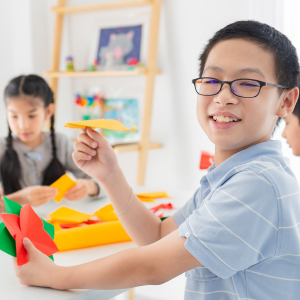 |
Transformative Social Skills Journey: A Success Story
|
|
From Shyness to Confidence: Alex's Transformative Journey with Dynamics Therapy Group's Social Skills Classes...
Click here
|
|
|
|

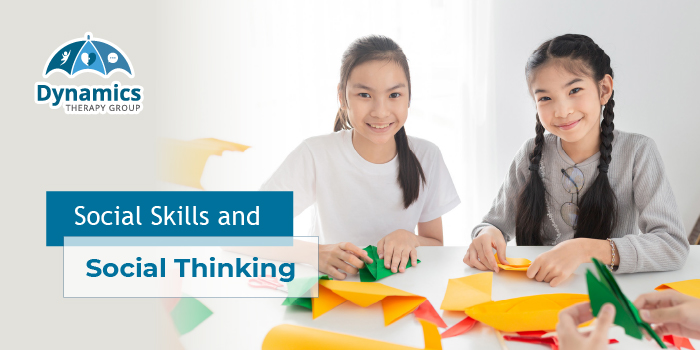





 Tell them what to do!
Tell them what to do!







